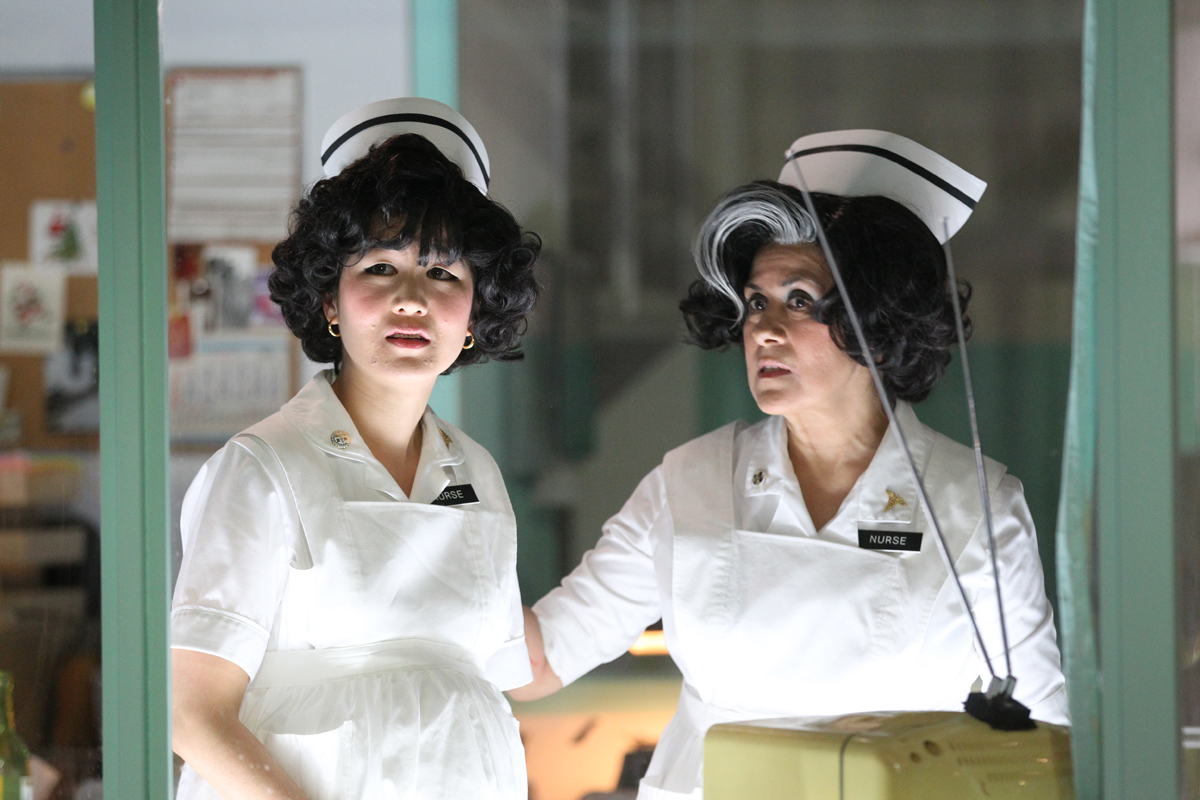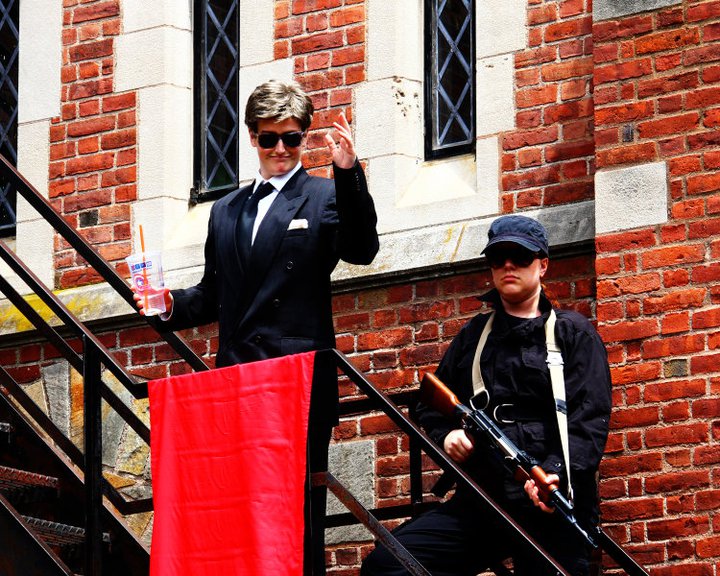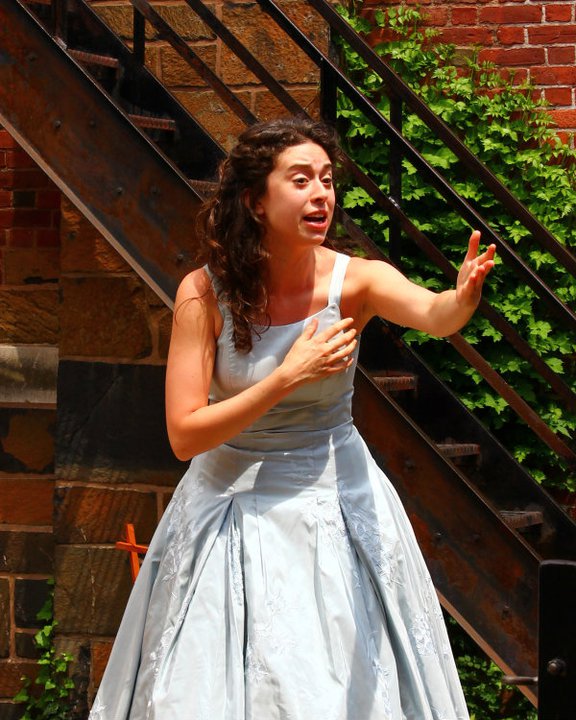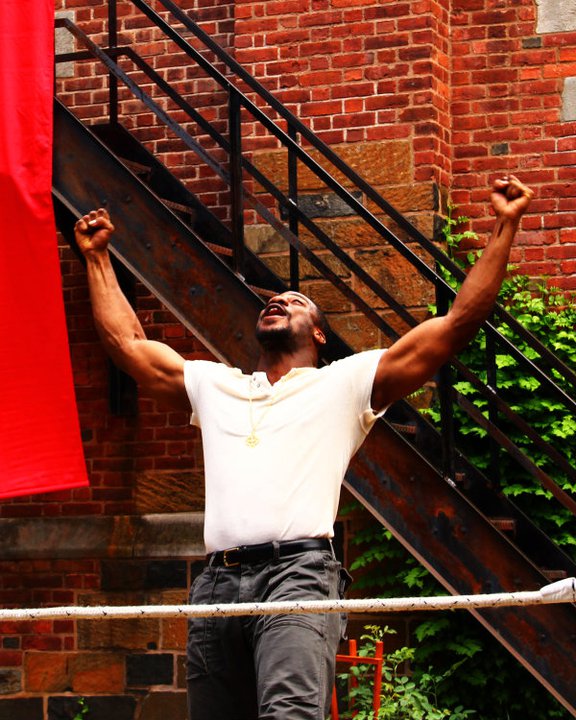The Fiasco Theater’s Measure for Measure begins previews this week at the Long Wharf Theatre’s Claire Tow Stage in the C. Newton Schenck III Theater. First performed by Fiasco in 2013, the Long Wharf production will be the company’s first revival of this play, often considered a bit of a slog in its tale of corruption, strict moral codes, and deus ex machina Duke. On the contrary, Fiasco’s version has been called “charming.”
Fiasco's Noah Brody
Noah Brody, one of the founding members of Fiasco, which formed in 2009 and launched its inaugural production of Cymbeline in 2010, is “honestly thrilled” to be able to remount Measure for Measure for the Long Wharf’s intimate thrust-style theater. When played previously, the show was done in a standard proscenium setting and that means the new version will have to adapt, a challenge that is part of the governing aesthetic of Fiasco. Brody sees this as an opportunity to “reach out” to the audience, stressing that both players and viewers “are in the same place, breathing the same air.”
A cast of six actors plays all the parts in Measure for Measure, with a set that mainly consists of six doors and some benches. It’s a minimalist approach, perhaps, but as Brody says, “when there’s not a lot of money, you concentrate on what you really need,” and that promotes inventiveness, to use everything at one’s disposal and to make the most of it.
As all the members of Fiasco were trained as actors in the MFA program at Brown/Trinity, a key term for their approach is “actor-driven” stagings. What this means, Brody says, is that every production is achieved by the ensemble, and every decision comes from the ensemble. Decision-making is “not hierarchical.” The director—for the Long Wharf production, Brody and Ben Steinfeld are co-directing—“is responsible for leading the conversation,” but does not dictate the approach. And that means the troupe gets to completely rethink their previous decisions about every aspect of Measure for Measure, not only for changes in design determined by the changed space, but also the differences due to the times and the situations that apply to the creative process. “We’ll say, ‘last time we did this: why did we do that? Do we still want to do it that way?’” The “this” could be anything from costumes to blocking to the delivery of a line to cuts and edits in the material.
Since “fun” is not always associated with Measure, often deemed Shakespeare’s darkest, least likable comedy, I had to ask why it was the play they chose. Brody cited the play’s language, its “great scenes” with “wonderful parts to play” for a “uni-generational cast.” Its content—which he characterized as “how to rule a just state”—is thoughtful, particularly in tensions “between the spiritual and secular life.” In his view, much of the darkness of the play comes from productions not seeing how “playful” the text is, whereas Fiasco highlights the “seriousness in the comic relief and the ironies in the serious parts.” “There’s great comedy and seriousness at all times in the same scene and in the same line,” Brody says. Bringing out those nuances, finding the fun in the whole, is one of the aims of the Fiasco approach.
Brody says the Fiasco team didn’t graduate from the acting program with intentions to form their own company. As actors, they’re used to being hired as “a small cog in a large machine.” “You hope to bring something to the vision of a play,” but are rarely in control of what parts you get or the style of the production. And most actors accept that they have “to sink or swim as an individual,” competing for the best parts available. To form a troupe of actors, able to devise and implement their own productions, is a “dream come true,” and moving the show to Long Wharf a “great opportunity” to revisit the production for a new audience, with possibilities for new, surprising events.
Fiasco is far enough along in their development to have learned that putting on new productions and devising new productions are hard to do simultaneously. After this season—which consists of an acclaimed Two Gentlemen of Verona last spring and now Measure in the fall—they will be at work on planning the brand new productions they will be offering in 2016 through 2018. The team’s “core passion,” Brody says, is in classical theater—so far, Shakespeare—and musicals, such as their production of Into the Woods, which won the Lucille Lortel Award for Best Revival of 2015, so they are certainly looking at “more Shakespeare and more musicals” that fit their requirements, and “we’re also looking at Restoration plays,” and are planning their “first original piece” as well as considering stage adaptations of novels.
Whatever the new productions will be, they will be devised by a troupe of actors with no fixed theatrical abode, but driven by a commitment to making theater together, benefiting from the troupe’s familiarity with one another, and to finding their own unique way into a play, providing audiences with memorable productions full of a love of the challenge of discovery.
Measure for Measure, by the Fiasco Theater, begins in previews at the Long Wharf Theatre Wednesday, November 25, and opens Wednesday December 1.






